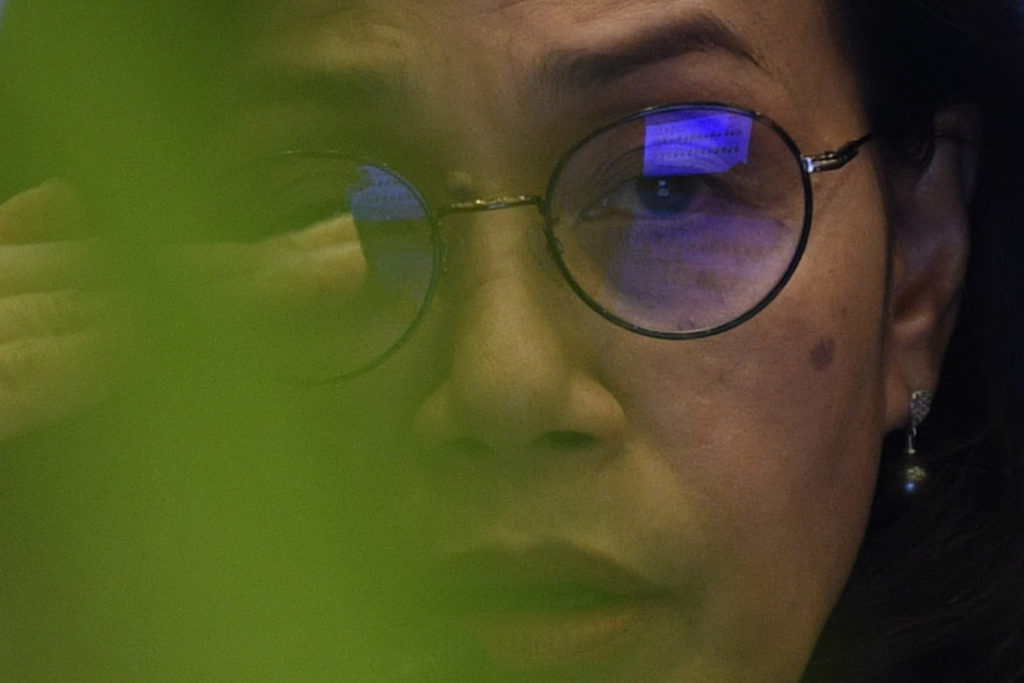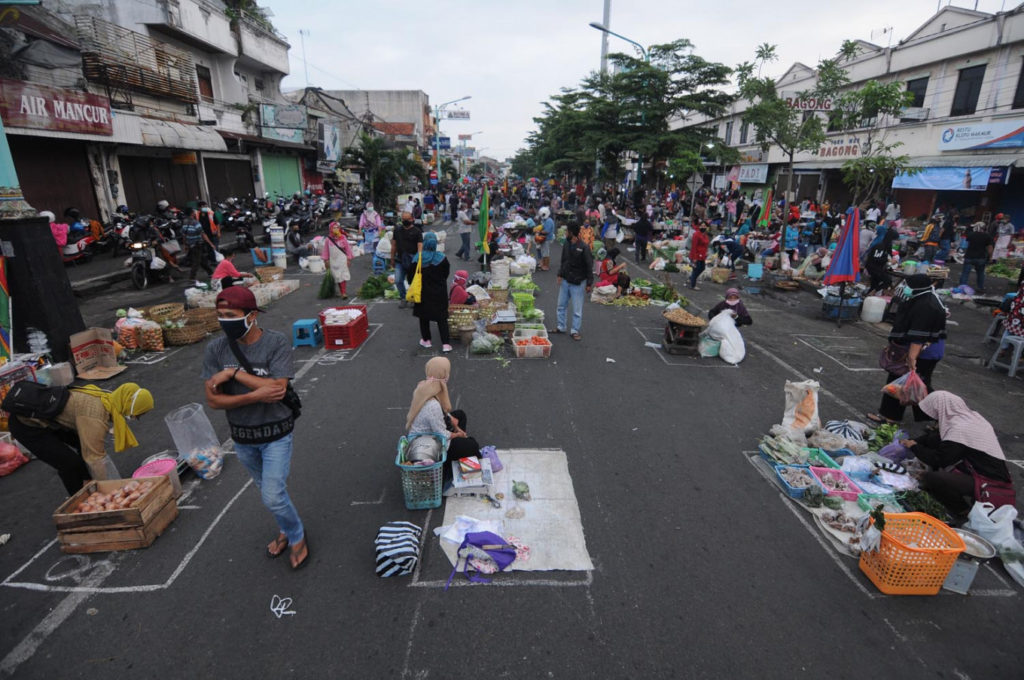ในปี 2562 ประธานาธิบดีโจโก วิโดโดแห่งสาธารณรัฐอินโดนีเซีย ประกาศย้ายเมืองหลวงจากจาการ์ตาไปยังอิบูโกตาเนการานูซันตารา ในจังหวัดกาลิมันตันตะวันออก แผนการพัฒนานูซันตาราแบ่งออกเป็น 5 ระยะ เริ่มตั้งแต่ พ.ศ.2565-2588 ด้วยงบประมาณกว่า 3 หมื่นล้านดอลลาร์ พื้นที่โดยรวมขนาด1,600.88 ไร่ ประกอบด้วยพื้นที่พัฒนาสามเขต
1. ศูนย์กลางการปกครอง พื้นที่ 42.9 ไร่ เป็นที่ตั้งสำนักงานรัฐบาลกลาง (ทำเนียบประธานาธิบดี, กระทรวง ทบวง กรม, สถานทูต บ้านพักทหาร ตำรวจ และข้าราชการพลเรือน)
2. เขตเมืองหลวง พื้นที่ 351.13 ไร่ เป็นส่วนต่อขยายจากเขตศูนย์กลางการปกครอง เป็นที่ตั้งของธุรกิจสำนักงาน มหาวิทยาลัย โรงพยาบาล เป็นต้น
3. ส่วนขยายของเมืองหลวง ครอบคลุมพื้นที่ส่วนที่เหลือกำหนดให้เป็นเขตอุตสาหกรรมและการท่องเที่ยวเชิงอนุรักษ์
รัฐบาลอินโดนีเซียวางแผนใช้เงินทุนพัฒนานูซันตาราจากสองแหล่ง แหล่งแรกใช้งบประมาณแห่งชาติ 20% ที่เหลือให้ภาคเอกชนเข้ามามีส่วนร่วม
ความคืบหน้าโครงการ
นับถึงวันที่ 31 มี.ค.ที่ผ่านมา รัฐบาลอินโดนีเซียโดยกระทรวงงานสาธารณะและการเคหะรายงานว่า การพัฒนาศูนย์กลางการปกครอง ซึ่งประกอบด้วยทำเนียบประธานาธิบดี สำนักงานประธานาธิบดี สำนักงาน 4 กระทรวง บ้านพักรัฐมนตรี ทางด่วน ทางหลวง เขื่อน และ Sumbu Kebangsaan Region (เขตที่ออกแบบมาให้เป็นศูนย์กลางของชาติ ตั้งอยู่ใจกลางประเทศพอดี วัดจากตะวันออกสุดหรือตะวันตกสุดได้ระยะทางเท่ากัน) ทำไปได้ 25% แล้ว
เมื่อวันที่ 5 เม.ย.ที่ผ่านมา รัฐมนตรีว่าการกระทรวงงานสาธารณะและการเคหะคาดว่า การย้ายเมืองหลวงจะทำได้ในเดือน ส.ค.2567 เพื่อเฉลิมฉลอง 79 ปีเอกราชสาธารณรัฐอินโดนีเซีย
อย่างไรก็ตาม การพัฒนานูซันตารายังต้องการการสนับสนุนจากทุกฝ่ายที่เกี่ยวข้องโดยเฉพาะในด้านการเงิน รัฐบาลอินโดนีเซีย กระทรวงการต่างประเทศโดยสถานเอกอัครราชทูตอินโดนีเซียประจำประเทศไทยเล็งเห็นความสำคัญที่ภาคเอกชนไทยจะเข้าไปมีส่วนร่วมลงทุนพัฒนาเมืองหลวงใหม่แห่งนี้ เช่นเดียวกับเหล่านักลงทุนจากญี่ปุ่น มาเลเซีย และสิงคโปร์
ความสำคัญของไทย
ไทยมีขนาดเศรษฐกิจใหญ่เป็นอันดับสองของอาเซียนรองจากอินโดนีเซีย ระบบโลจิสติกส์ยอดเยี่ยมเป็นอันดับสองของอาเซียนรองจากสิงคโปร์ เป็นศูนย์กลางธุรกิจและการลงทุนประจำภูมิภาคอินโดจีนและเอเชียตะวันออกเฉียงใต้ของบริษัทข้ามชาติระดับโลกมากมาย อีกทั้งไทยยังเป็นสมาชิกอาเซียนที่เข้าไปลงทุนในอินโดนีเซียอย่างแข็งขันระหว่างปี 2560-2565 รวม 1.52 พันล้านดอลลาร์จาก 1,486 โครงการ
นับถึงวันนี้ บริษัทไทยเข้าไปลงทุนในอินโดนีเซียแล้ว 14 บริษัท อาทิ เอสซีจี, เครือเจริญโภคภัณฑ์, บริษัท ปตท.จำกัด (มหาชน), ธนาคารกรุงเทพฯ และธนาคารกสิกรไทย ด้วยคุณสมบัติของบริษัทเหล่านี้ชี้ว่า นักลงทุนไทยมีศักยภาพในการเข้าไปลงทุนร่วมสร้างเมืองหลวงใหม่ของอินโดนีเซีย เมื่อไม่กี่วันก่อนสถานเอกอัครราชทูตอินโดนีเซียประจำประเทศไทยจึงจัดเวทีธุรกิจในหัวข้อ “โอกาสการลงทุนในนูซันตารา: เมืองหลวงแห่งใหม่ของอินโดนีเซีย”เปิดให้นักลงทุนไทยได้พบกับเจ้าหน้าที่ศูนย์ส่งเสริมการลงทุนอินโดนีเซียและสำนักงานคณะกรรมการนูซันตาราโดยตรง
เวทีธุรกิจนี้เป็นส่วนหนึ่งของกิจกรรมส่งเสริมการค้า, การท่องเที่ยว การลงทุน และวัฒนธรรม (Trade, Tourism, Investment, and Culture Forum: TTICF 2023) จัดโดยสถานเอกอัครราชทูตอินโดนีเซียประจำประเทศไทย
โอกาสของธุรกิจไทย
อากุง วิซัคโซโน ผู้ช่วยผู้อำนวยการสำนักงานเมืองหลวงนูซันตารา ฝ่ายเงินทุนและการลงทุนกล่าวในเวทีธุรกิจแนะนำภาคส่วนที่น่าลงทุน ได้แก่ พลังงานหมุนเวียน, เครือข่ายโทรคมนาคม, การขนส่ง, ที่อยู่อาศัย, การบำบัดน้ำ, การจัดการขยะ, โครงสร้างพื้นฐานด้านเทคโนโลยี, โครงสร้างพื้นฐานด้านการพาณิชย์, โครงสร้างพื้นฐานทางการแพทย์ สังคมและสาธารณะ การศึกษา และเขตอุตสาหกรรมสีเขียว
การลงทุนในภาคส่วนเหล่านี้จะได้รับสิทธิประโยชน์มากมายจากรัฐบาลอินโดนีเซีย เปรียบได้กับการ “ปูพรมแดง” เลยทีเดียว เช่น ภาคส่วนโครงสร้างพื้นฐานและที่อยู่อาศัยได้รับการยกเว้นภาษีนานถึง 30 ปี ภาคส่วนการศึกษา การวิจัยและพัฒนาลดภาษีกระหน่ำมากถึง 350% การลงทุนในนูซันตารามีโอกาสลดภาษีเงินได้เช่นกัน กระบวนการขออนุมัติโครงการทำได้รวดเร็วราบรื่นแบบฟาสต์แทร็ก
ท่องเที่ยวหนุนเศรษฐกิจไทย-อินโดนีเซีย
อากุงกล่าวด้วยว่า ภาคการท่องเที่ยวมีบทบาทสำคัญต่อเศรษฐกิจไทยและอินโดนีเซีย การผ่อนคลายมาตรการคุมโควิดช่วยให้เศรษฐกิจทั้งสองประเทศฟื้นตัว คาดว่าผลผลิตมวลรวมภายในประเทศ (จีดีพี) ไทยขยายตัว 3.5% และอินโดนีเซียขยายตัว 5.3% ภาคส่วนการท่องเที่ยวเชิงนิเวศในนูซันตาราเป็นอีกหนึ่งโอกาสที่ไทยและอินโดนีเซียจะได้เป็นศูนย์กลางการเติบโตทางเศรษฐกิจของภูมิภาค
ที่มา : หนังสือพิมพ์กรุงเทพธุรกิจ Link










